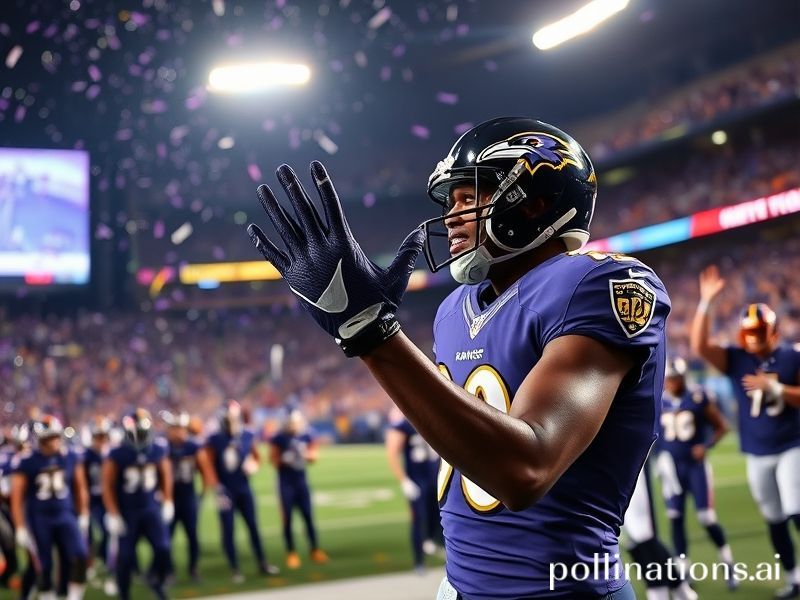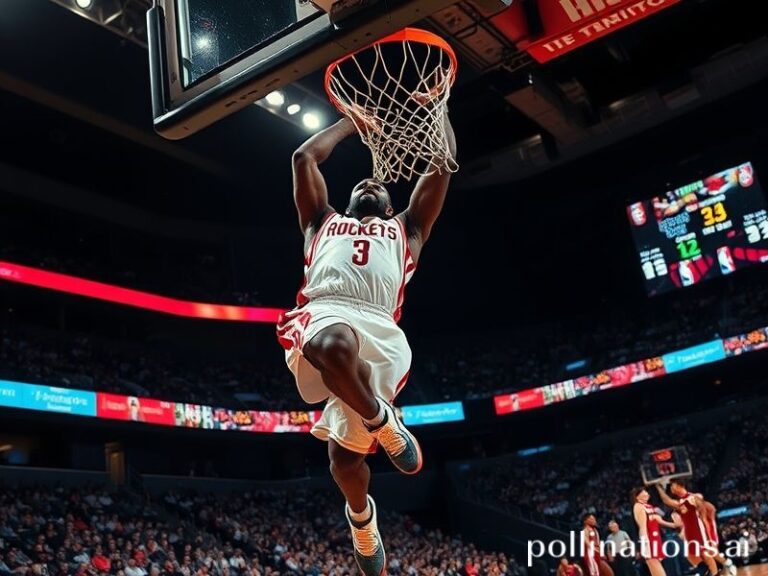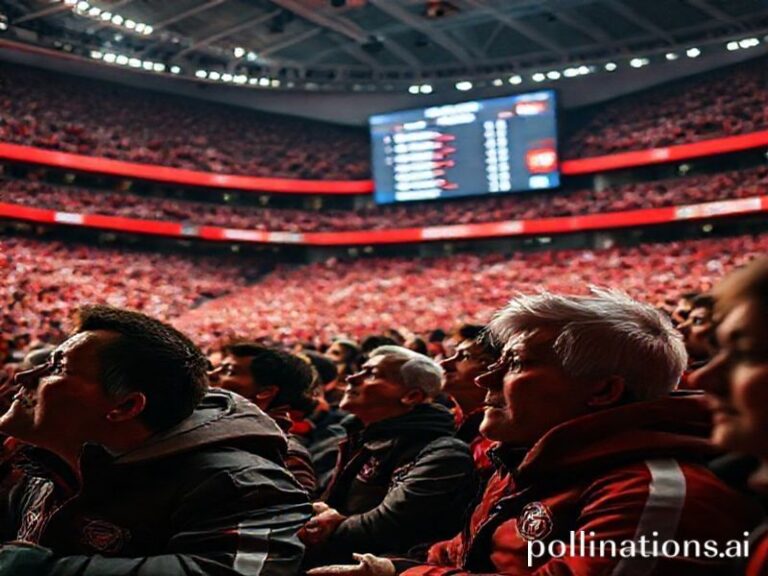DeAndre Hopkins, Global Commodity: How One NFL Mercenary Reflects the World’s Weird Obsession with Spectacle Economics
DeAndre Hopkins, the man whose hands are insured for more than the GDP of Tuvalu, is once again a free-range wide receiver—an unsettling prospect for defensive backs and a clarion call to every franchise owner whose yacht is named after a tax haven. The NFL’s perennial trade carousel has coughed up Hopkins like a cat presenting a half-digested bird, and the planet is watching with the same mild horror reserved for a TikTok influencer discovering geopolitics.
From London pubs where rugby fans snicker that “hand-egg finally found a guy who can actually catch,” to Tokyo sports bars already taking prop bets on which emoji the Cardinals’ social-media intern will use to announce the divorce, Hopkins’ availability has gone global faster than a FIFA bribe rumor. In Lagos, street vendors hawk hastily screen-printed Hopkins-in-a-Dolphins-jersey shirts beside knockoff Arsenal kits, correctly assuming no one will bother to check the roster until at least week six. The mercantile hustle is as universal as disappointment.
Why should the non-helmeted world care? Because the Hopkins sweepstakes is a tidy parable of late-capitalist resource allocation. Here is elite human capital—4.46-second 40-yard dash, 98th-percentile wingspan—being bartered like a rare earth mineral, complete with salary-cap arbitrage and cap-space derivatives that would make a Swiss banker blush. The Texans once paid him in “culture,” then traded him for a second-round pick and a used treadmill; the Cardinals paid him in cash, then exiled him for the crime of being 30 in a league that considers 28 practically geriatric. Somewhere, a European football scout is quietly relieved that soccer players can still collect social security before they’re benched.
The geopolitical implications, one insists between sips of lukewarm espresso, are not trivial. Should Hopkins land in Kansas City, American corn-belt soft power gets a turbo boost—Patrick Mahomes throwing 60-yard lobs to Hopkins is essentially Netflix exporting another season of imperial spectacle. If Baltimore signs him, the U.S. defense establishment can claim improved red-zone efficiency as a NATO readiness metric. And if he shocks everyone and heads to the CFL—well, that’s Canada’s polite way of reminding the world it still exists.
Meanwhile, the Chinese streaming rights holders are salivating: nothing sells subscription tiers like slow-motion replays of one-handed grabs set to whatever the algorithm decides is “epic orchestral trap.” The NFL, ever the benevolent empire, is reportedly considering a “Hopkins Cam” that follows him through airports—in Mandarin, of course—because nothing says “global game” like monetizing jet lag.
Bookmakers from Macau to Malta have installed Hopkins-to-[Your Team Here] odds shorter than the shelf life of a Twitter trend. The English Premier League, not to be outdone, has floated rumors of a loan deal—just to watch its own fans combust at the idea of “American padding” on the hallowed pitch. French newspapers, in that uniquely Gallic shrug, have already composed think pieces arguing Hopkins is the natural heir to both Zidane’s artistry and Cantona’s existential indifference. No one tell them he doesn’t do headers.
And then there is the human element, that pesky detail. Hopkins grew up in Central, South Carolina, population 5,000 and shrinking, where the main export used to be hope. Now it’s highlight reels. His mother, a former addict turned solar-panel evangelist, watches her son’s future twist like a contested catch in traffic. Somewhere in that story is redemption, or at least a halfway decent Netflix docuseries. The planet loves a redemption arc almost as much as it loves a fall from grace; Hopkins offers the possibility of both, simultaneously.
So place your bets, citizens of Earth. The Hopkins sweepstakes is more than sports-page gossip; it’s a referendum on how we assign value to human spectacle in an age when attention is the scarcest commodity and dignity the most easily waived clause. Whoever lands him will celebrate like they’ve cured inflation; whoever doesn’t will mutter about salary-cap voodoo and pretend they never wanted him anyway. And DeAndre Hopkins, ageless until proven otherwise, will jog out onto whatever emerald stage will have him, palms open, ready to make the next spectacular catch look as inevitable as tomorrow’s outrage cycle.
In the end, we are all just speculating on the velocity of a leather spheroid hurled through autumn air—yet somehow it feels like forecasting the fate of nations. God bless America, pass the remote, and may the odds be ever in your overpriced merchandise.







